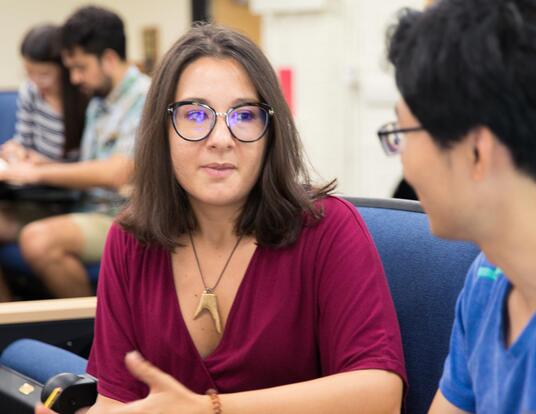It’s something that can happen easily during graduate school: popcorn becomes your dinner when you’re frantically trying to submit a conference abstract before the deadline; your annual physical gets bumped because you’re probably fine and don’t have the time; you figure everyone feels this anxious because that’s how academia is. Before you know it, a series of isolated incidents can become an unhealthy pattern. While each individual is ultimately responsible for taking charge of their own self-care, doing so is much easier when being well is the norm, not the exception. To this end, all members of a program or department community should strive to foster a culture that prioritizes physical and mental well-being. When it comes to a family issue or personal dilemma, some students may want to share with their advisor, while others may not: each relationship will look different. If they do choose to ask for advice or give an update, students should expect active listening and a broad knowledge of resources available at GSAS from their faculty. Though they need to be attuned to students’ needs, advisors will not have expertise related to every possible situation, which is why having a broad support network—other faculty, staff, colleagues, family—is so important for every stage of the PhD process.
Quick Tips
- Check In. You can signal that you are interested in your advisor’s well-being and that you are open to discussions of your own by asking questions about their lives beyond academia. Not everyone will want to engage, and that’s okay. Remember that no two advising relationships will look the same, and each advisor/advisee pair will need to find their own unique balance.
- Know Your Options. While faculty and staff should be familiar with GSAS offices and resources to recommend, students should also explore their options. If you feel comfortable, share what resources have worked for you with your advisor, such as a writing group or career workshop, so they can share your tips with other advisees.
- Plan A Break. Maybe you work from 7:00 a.m. to 3:00 p.m. and then head to the gym. Maybe you give yourself an hour lunch break every day, even if it only takes you 20 minutes to eat. Maybe 11:00 a.m. is your Wordle time or you walk across campus to buy a coffee. Consider asking your advisor how they approach taking breaks or how they think about work-life balance.
Resources:
Check out a list of GSAS Resources covering everything from childcare to grief support.
Listen to the Colloquy Podcast: “The Graduate Student Mental Health Crisis” episode.
Try the New York Times “7-Day Happiness Challenge” via free Harvard Library institutional access.






